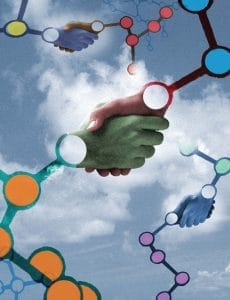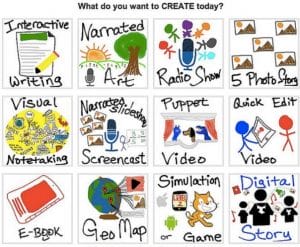 The Librarian’s Playbook for the Extended Essay
The Librarian’s Playbook for the Extended Essay
As the school librarian, the librarian’s role in the Extended Essay (EE) is non-negotiable—it’s a requirement and an expectation that I am a core part of the research process. Over the years, I’ve developed a system for helping students succeed, and it all starts with a series of targeted mini-lessons and my commitment to being a constant support to students.
I believe the EE program is a structured, collaborative effort with the TOK Teachers, Extended Essay Supervisors, and the EE coordinator. While every school does things a little differently, this is my playbook for guiding students from their initial ideas to their final viva voce.
Step 1: The Foundational Mini-Lessons
The first part of the process is helping students find their focus. This is where I conduct a short but crucial mini-lessons at the very beginning of the project to help them craft a research question that isn’t too broad or too narrow.
- Brainstorming: I encourage students to brainstorm different areas of interest using tech tools like Miro, MindMeister, or even just Google Docs. I also show them how to use AI models like ChatGPT or other LLMs to explore and structure initial ideas.
- Connecting to the Curriculum: Once they have an idea, we work together to connect it to a specific subject they are studying in the Diploma Programme.
- Crafting the Question: I conduct a final mini-lesson on how to craft a strong, focused research question using several examples directly from the IB website.
- Reading a sample of the EE with the Criteria: Providing time to read a sample of an EE that is related to their topic allows them to see the layout and compare it with the criteria.
Step 2: Navigating the Research Landscape
The next step is teaching students where to find high-quality, scholarly information. I don’t just point them to the databases; I teach them how to use them. I created a site for them to navigate all the free resources that are available to them. Sentences starters also help them craft better structures.
I host mini-workshops on accessing and using our school’s databases. I demonstrate how to use powerful resources like JSTOR, Gale, and even a new tool like Elicit to find the most relevant academic articles and papers for their research. I show them how to use keywords, filters, and other search techniques to save time and find exactly what they need. Throughout this process, I make it clear that I’m always available to help them, whether they’re stuck on a search or can’t access a specific article.
Step 3: Mastering Academic Honesty
Academic honesty is the key factor of the Extended Essay, and it’s my job to make sure students understand it. I teach them the specific skills they need to avoid plagiarism.
- How to Paraphrase: I teach a mini-lesson on how to take information from a source and rewrite it in their own words, making sure to preserve the original meaning.
- In-Text Citation: I stress the importance of in-text citations. It’s common for students to get confused by different citation styles, for example, using a Chicago-style in-text citation with an MLA-formatted bibliography. I teach them the MLA format for all subjects, except for Psychology where students follow the APA format. This consistency makes the process easier for them.
- LLMs and Citation: I also teach them that if they use an LLM for help structuring their research question, they must mention it during the essay or during their viva voce.
Step 4: The Final Checkpoints
Before they submit, I remind students that the viva voce is the final opportunity to show what they’ve learned and understood from the EE process. I also reinforce that all references, including the large language models used in the EE must be cited. A reminder that if they have used large language models to help them with the outline, that must be mentioned in the reflections. If a student uses a website or another source to learn about a topic but doesn’t include it in their paper, then it doesn’t need to be cited.
My Personal Experience as an EE Supervisor
After I signed up to become an EE supervisor, I became more confident and able to guide students in a way that was truly meaningful to them. Understanding the process and subject-specific guidelines from the other side made me a better librarian. If you are a librarian and interested in learning more, you can contact ceo@liferarian.com or join the EE supervisors program with the IB through your school’s PD funds.
The Extended Essay is embedded in the IB program to equip students for college. By teaching them to use resources like JSTOR, Gale, and Elicit and reinforcing academic honesty, we give them the tools to not only succeed on the EE but to thrive in their future academic careers.
“Librarians are uniquely positioned to play an important and effective role in the extended essay process. As interdisciplinary educators, they are able to work across subject areas to help students become lifelong learners through inquiring, gaining, and creating new knowledge, and pursuing personal interests. With the necessary educational background and training, they are able to support students in the development of information literacy and research skills.” IB Extended Essay Guide.
Resource: Extended Essay Guide 2027 and AI in learning and teaching





